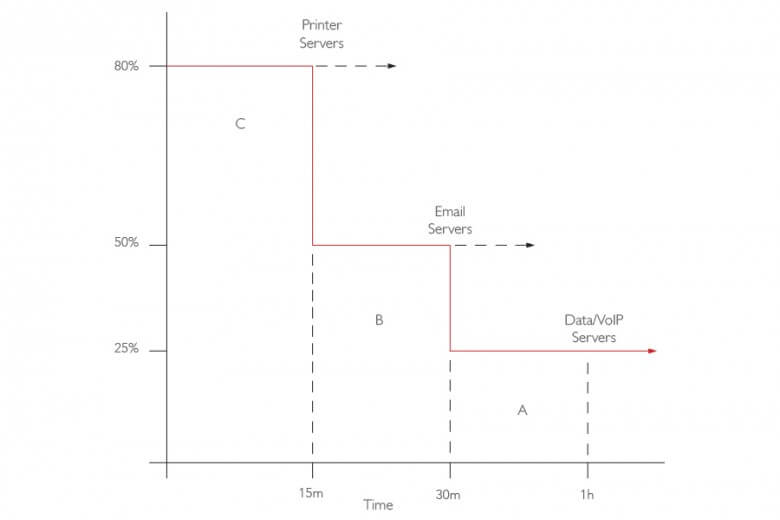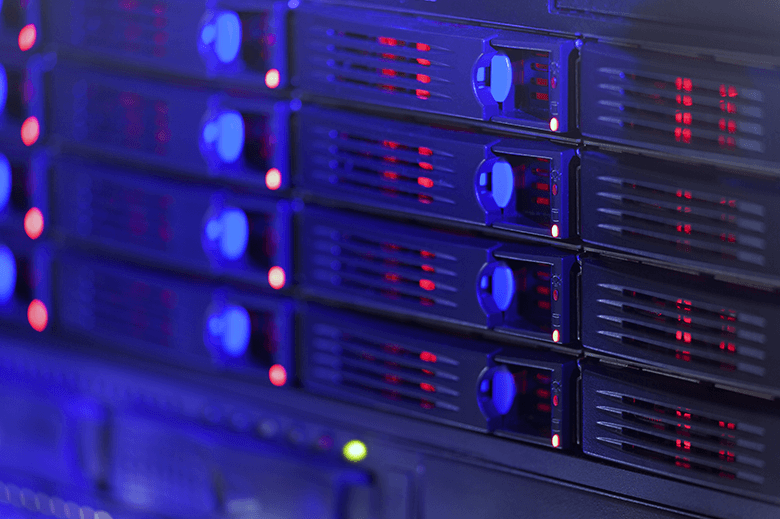News
What is a Power Failure?
A power failure is the temporary loss of electricity supply to an area, lasting from a fraction of a second to several days. It may affect a single building or entire regions and can be caused by weather, equipment faults or other disruptions.
Electricity powers almost everything we do - from running computers and machinery to keeping lighting, heating and security systems operational. When the supply stops, the impact can be immediate and costly. Understanding what causes power failures, how they occur and how to protect against them is essential for any organisation.

Understanding Power Failures
In simple terms, a power failure is an interruption or complete stop in the flow of electricity. Some interruptions last only milliseconds and restore automatically. Others require engineers to repair damaged infrastructure before power can return.
A power cut can affect only certain circuits or areas (partial outage) or shut down power to entire buildings or regions (complete outage). Recovery time depends entirely on the cause - from a blown fuse fixed in minutes to severe weather damage taking days.
Common Causes of Power Failures
While power cuts may feel unpredictable, most fall into a few well-known categories:
- Severe Weather: High winds, snow, ice and flooding can damage lines or short-circuit equipment.
- Natural Disasters: Earthquakes, hurricanes and wildfires can destroy infrastructure on a large scale.
- Falling Trees & Vegetation: Common during storms; can take out lines or transformers.
- Wildlife Interference: Birds, squirrels and other animals can trip equipment by contacting live components.
- Technical Faults: Equipment breakdowns, grid overload and human error can all trigger outages.
- Cybersecurity Threats: Cyberattacks targeting power networks are now an emerging risk.
Learn more in our Beginner’s Guide to UPS.
Types of Power Failures
| Type of Failure | Description | Typical Impact |
| Transient Fault | Brief interruption lasting milliseconds; usually clears automatically. | Minimal disruption; lights flicker, systems may reset. |
| Brownout | Sustained drop in voltage lasting hours or days. | Dimming lights, poor equipment performance, risk to sensitive electronics without a UPS. |
| Blackout | Total loss of power from seconds to several hours or more. | Highest operational risk; can cause data loss, downtime and safety issues. |
The Impact on Businesses
Electricity is the backbone of modern operations - from IT networks and security systems to manufacturing processes. Even short interruptions can cause:
- Lost data and corrupted files
- Missed deadlines
- Reduced productivity
- Revenue loss
- Equipment damage
For sectors where uptime is critical, such as healthcare, manufacturing, financial services and facilities management, a sudden blackout without protection can have severe consequences.
How to Protect Against Power Failures
One of the most effective ways to safeguard your organisation is with an Uninterruptible Power Supply (UPS).
A UPS instantly switches to battery power the moment mains electricity drops, keeping your critical equipment running and protecting against voltage spikes. Choosing the right UPS depends on your required runtime, load size and application - whether it’s the best UPS for a CCTV system, UPS for facilities management, or UPS for the healthcare sector.
To keep your backup power reliable, UPS maintenance is essential. Regular UPS system maintenance, battery testing and timely replacement prevent faults and ensure your UPS performs when you need it most.
What to Do During a Power Cut
If you experience an outage in the UK, call 105. This free national number, run by network operators, provides:
- Fault reports
- Updates on how widespread the outage is
- Estimated restoration times
Discover more about UPS maintenance and seasonal preparation.
Is It Time to Plan for Power Protection?
Most of us take electricity for granted until an outage highlights our vulnerability. Today, where almost every aspect of business and security relies on a stable power supply, having a backup plan isn’t optional - it’s essential.
Installing a UPS from a trusted provider like Adept Power Solutions ensures your business stays operational, even during unexpected power failures. Whether you need short runtime to safely shut systems down or extended backup for mission-critical processes, we can design the right solution.
Contact us today to discuss your power protection needs and get expert advice on choosing the right UPS for your organisation.
FAQs
1. What is the main cause of power failures?
Severe weather is the most common cause of power failures, as wind, ice and storms can damage power lines and equipment.
2. How can I protect my business from power outages?
Installing a UPS system provides instant backup power, protects equipment from voltage issues and prevents data loss during outages.
3. How often should UPS maintenance be carried out?
Most UPS systems should receive professional maintenance at least once a year, with batteries tested more frequently depending on usage and environment.
4. What type of UPS is best for CCTV systems?
The best UPS for a CCTV system is typically a line-interactive UPS with enough runtime to keep cameras, NVRs and network switches online during short or extended outages.

